Nigeria‘s internet profile
Can we talk of strategy without data, and can we talk of data without a culture of measuring and evaluation? National strategic planning in the internet segment will involve asking a series of important questions, collecting the right data needed to answer these questions and making choices from several alternatives that align with a long-term desired goal. The notion that the world is becoming a global village is one that is far from the truth today. It is already a global community. A change in one remote part of this community has an effect on another remote part of the community. The internet is a reflection of this global community and certain nations of the world have taken the time to craft a strategic roadmap that will ensure their competitiveness and enhance their advantage and opportunities in the future.
The Nigerian market for internet users is the 8th largest in the world, according to the elaboration of data by International Telecommunication Union (ITU) captured on July 1, 2014. This may come as a surprise to many considering the relatively low internet penetration levels recorded by Nigeria and the challenge of infrastructure. The internet penetration level which is often shown to be less than 40 percent portrays a huge potential for the Nigerian internet market as well as its global positioning in the use of the internet. This statistic is very important in understanding the global internet market, and they can serve as tools for policymakers to influence the trends and direct policy towards addressing root problems in line with Nigeria’s rising global internet profile. The growth experienced in the Nigerian internet enterprise can be broken down into two categories – the upward growth and the downward growth. Most of the internet statistics on Nigeria primarily show upward growth which is largely due to the growing population figures. The downward growth is the more sustainable growth. This is the growth in internet infrastructure, national internet policies, and use of global internet resources. Upward growth is usually a consequence of downward growth, and therefore it’s advisable to ensure that strategic focus is given downward growth.
Even though the upward growth seems to be positive and highly commendable for Nigeria, the downward growth (foundational growth) still leaves much to be desired today. According to the National Bureau of Statistics telecommunications report of April 2015, 60.5 percent of all active GSM subscriptions in Nigeria had internet subscriptions, and 48.77 percent in the same period of 2014. This accounted for an 11.98 percent point rise from the previous year. This is quite significant and important because GSM internet subscriptions contribute a high percentage of overall internet usage growth statistics in Nigeria due to their ease of acquisition.
Accurate measurement of the actual volumes for national strategic planning will continue to be a challenge due to the practice of international transit peering of most GSM operators in Nigeria. (This is a situation where internet traffic is not handed off locally within Nigeria.) This in itself may not be perceived as a problem by many as long as real-time measurements are available for national planning.
According to statistics from AFRINIC (African Network Information Centre, the regional internet registry for Africa responsible for the distribution and management of internet number resources such as Internet Protocol addresses), one thing is clear – Kenya and South Africa have demonstrated a more strategic behaviour in their downward growth (e.g., with respect to IPV4 address allocations). The improvements in resource allocations to Nigeria in the last five years still leave more to be desired. Some of this progress has arisen from the commitment of a few Nigerians, associations and organizations. The global nature of the internet diminishes national boundaries, not only in the use of its services, but also with trade across the internet. This means that effective national regulations may become increasingly difficult to develop and enforce, and national policy direction will be required to address some of the pressing internet issues affecting Nigeria, like internet security.
Another critical issue which is not totally unrelated to this is the image of Nigerian internet users as “criminals and scammers”. Some of the very sophisticated scams that have been carried out from Nigeria (i.e., using IP address resources allocated to Nigeria) can be limited with improvement along the assignment and usage of public IPv4 (and now IPV6) addresses. A lot of fraudulent internet activities successfully go under the radar with the use of private addresses hiding under single public addresses. This is indeed a problem that can be fixed, most especially when there is the will. We must improve our internet image as a matter of urgent strategic importance.
Nigeria must increase its active involvement in internet organizations in Africa (e.g., ISOC, AFRINIC) and in the world, only as a fallout of a national policy direction. We must be clear as to where we want to be in the next five or 10 years in Africa, and how we plan to utilize our comparative advantage to drive this growth and development. The rising trend of content creation in east and southern parts of Africa is an indication to us that there is ample room to become a strong content creation internet economy in Africa. Alongside these efforts is the creating of practical and supportive regulations that will ensure that creative internet content receives copyright protection, security and patronage.
Chidinma Iwe
